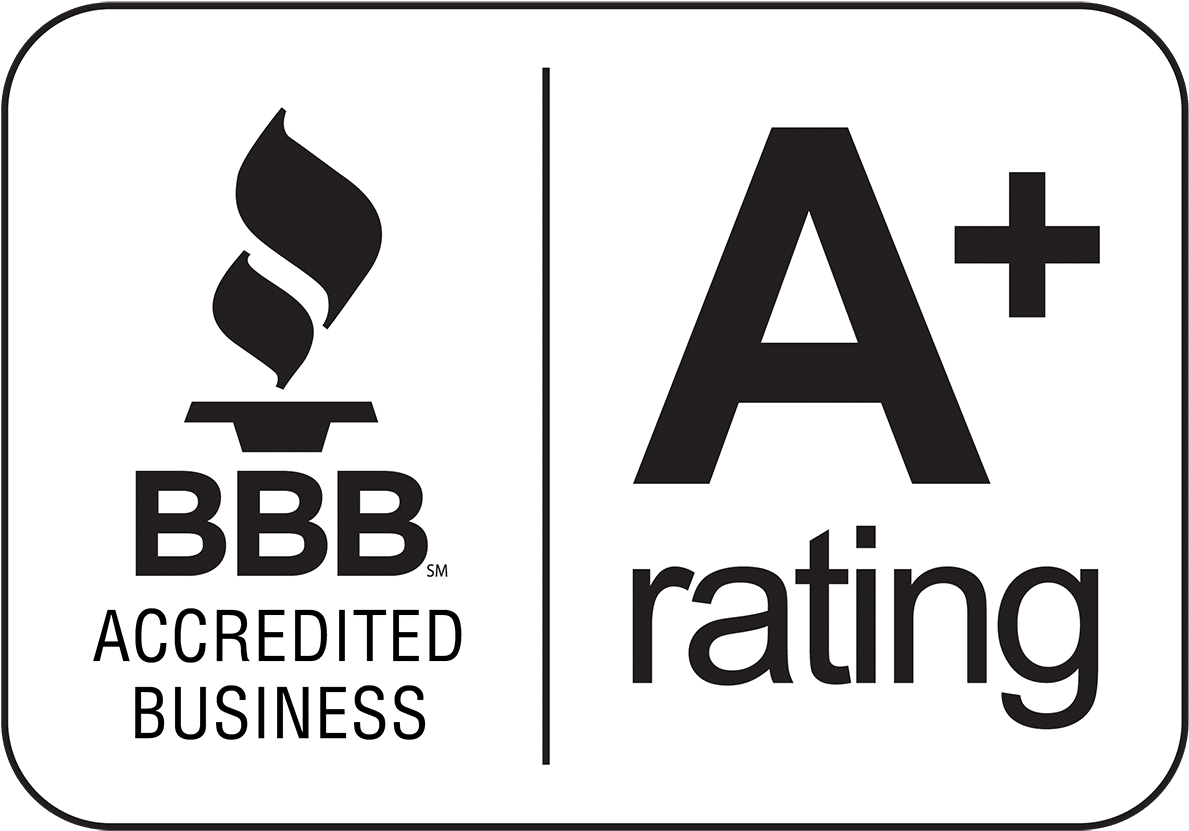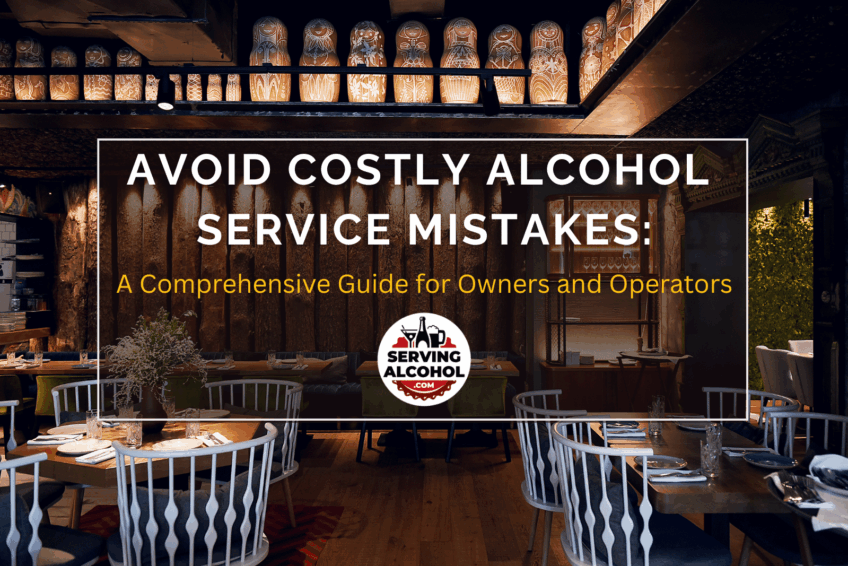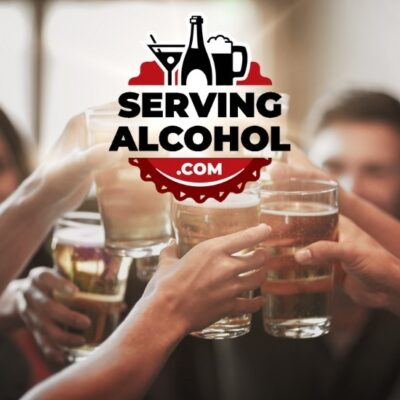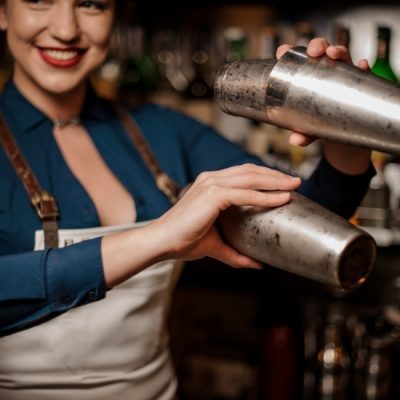As an operations manager, food and beverage manager, or restaurant owner, practicing responsible alcohol service is essential for maintaining customer satisfaction and vital for legal compliance, financial health, and the longevity of your liquor license. Mistakes in alcohol service can lead to significant fines, license suspensions, or even lawsuits that could threaten the existence of your business.
Common Operations Manager Alcohol Service Mistakes That Can Cost You
Failing to comply with alcohol service laws can carry severe penalties. Here are some frequent mistakes to watch out for:
Over-Serving Possibly Intoxicated Patrons
Serving alcohol to an intoxicated person is illegal across all U.S. states, but the specific definition of intoxication and the penalties related to it vary by jurisdiction. In our training, we stress that it’s essential to understand that the word ‘intoxicated’ implies only alcohol consumption. Impairment, however, encompasses alcohol and/or other factors.
Many impairments are poly-impairments, a combination of fatigue, lack of physical well-being, emotional instability, or other impairments brought on by the consumption of legal or illegal substances. A customer’s possible impairment, therefore, is not limited to just alcohol but can be alcohol and a combination of other factors. An alcoholic can be over the legal definition of intoxicated but not show any signs of obvious intoxication. Below is a breakdown of the laws and penalties in several states:

Texas Liability Penalties
- Criminal Penalty: Serving alcohol to an intoxicated person is a Class B misdemeanor, punishable by up to a $2,000 fine and/or up to 180 days in jail.
- Administrative Penalty: The Texas Alcoholic Beverage Commission (TABC) may impose fines ranging from $500 to $4,000 or suspend or revoke the establishment’s liquor license.
- Civil Liability: Establishments can be held liable for damages caused by the intoxicated individual.
In 2021, a Texas business faced a $301 billion-dollar verdict after the families of two victims of a drunk driver sued the bar. (Texas Dram Shop Cases: When the Bar Causes the Injury or Death)
Connecticut Liability Penalties
- Criminal Penalty: Violators may face a $1,000 fine, up to one year imprisonment, or both.
- Administrative Penalty: The Department of Consumer Protection (DCP) can suspend or revoke liquor permits and may require server training programs.
- Civil Liability: Under the Dram Shop Act, establishments may be liable for up to $250,000 if an intoxicated person causes injury or property damage.
Indiana Liability Penalties

- Criminal Penalty: If you knowingly serve alcohol to an intoxicated person, you commit a Class B misdemeanor. Criminal penalties can lead to imprisonment for up to one hundred eighty (180) days, and you may also face a fine of up to one thousand dollars ($1,000).
- Civil Defense: In civil proceedings, servers can fully defend themselves by demonstrating that they reasonably believed the person was intoxicated or not entitled to service.
In 2014, a “passenger’s settlement exceeding $1,000,000 was paid by the insurance company for a local tavern where the intoxicated driver was served alcoholic beverages before the crash.” (Million Dollar Settlement Won In Tavern Liability Case)
Oregon Liability Penalties
Providing alcohol to an intoxicated person is a Class A misdemeanor under Criminal Penalty, resulting in:
- First Conviction: Minimum $500 fine.
- Second Conviction: Minimum $1,000 fine.
Third or Subsequent Conviction: Minimum $1,500 fine and at least 30 days imprisonment.
New Jersey Liability Penalties
- Administrative Penalty: Licensed establishments may face fines or suspension/revocation of their liquor license for serving intoxicated persons.
- Civil Liability: Under dram shop and social host liability laws, establishments and individuals can be held liable if an intoxicated person causes injury or death after being served.
South Carolina Liability Penalties
- Civil Liability: Bars and establishments can face liability for damages if they serve alcohol to intoxicated individuals who subsequently cause harm.
A 2017 law mandates that South Carolina establishments maintain $1 million in liability insurance to cover potential lawsuits related to serving intoxicated or underage patrons. (Movement Trying to Change Liquor Liability Law to Avoid Paying Drunk Driving Victims)
Serving Alcohol To Minors

Serving alcohol to minors is illegal in all U.S. states, and the consequences—ranging from substantial fines to potential license revocation—can be severe. Understanding local regulations is also essential, as specific penalties and enforcement practices may vary by jurisdiction. Below is a breakdown of the laws and penalties in several states:
California Serving Minor Penalties
- Criminal Penalties:
- A misdemeanor offense can result in penalties that include a fine of up to $1,000 and the requirement to complete 24 to 32 hours of community service.
- If the minor causes injury or death, penalties can be up to 1 year in jail and a $1,000 fine.
- Contributing to the delinquency of a minor is up to 1 year in jail and a $2,500 fine.
- Social Host Liability: Parents can face charges if they knowingly allow underage drinking that results in harm.
Oregon Serving Minor Penalties
- Criminal Penalties:
- The first offense is a $350 fine.
- The second offense is a $1,000 fine.
- A third or subsequent offense is a $1,000 fine and at least 30 days imprisonment.
- Administrative Penalties: Licensees may face suspension or revocation of their liquor licenses.
- Social Host Liability: Parents can face charges if they knowingly allow underage drinking that results in harm.
New Jersey Serving Minor Penalties
- Criminal Penalties: Providing alcohol to a minor is a disorderly person’s offense, punishable by up to 6 months in jail and a $1,000 fine.
- Administrative Penalties: Licensed establishments may face fines or suspension/revocation of their liquor licenses for serving minors.
- Social Host Liability: Parents can face charges if they knowingly allow underage drinking that results in harm.
Connecticut Serving Minor Penalties
- Criminal Penalties: Allowing a minor to loiter where liquor is sold or served can result in up to 1 year in prison and a $1,000 fine.
- Administrative Penalties: The Division of Liquor Control may revoke or suspend liquor permits for violations.
A Bridgeport, Connecticut, liquor store was fined $20,000 and had its license temporarily suspended for selling alcohol to minors. (Bridgeport liquor store Julianne’s fined $20K for selling to teens: ‘A fairly high settlement’)
Not Enforcing Strict ID Checks

To support a responsible and compliant service environment, all guests under 30 are strongly recommended to present valid identification before being served alcohol. Consistent and thorough ID checks protect your establishment from legal and financial risks, such as fines ranging from $500 to $10,000 per violation, but also help foster a culture of accountability. Make ID verification a routine part of your daily operations to safeguard your business and uphold responsible service standards.
Ignoring Last-Call Regulations
Serving alcohol beyond the legal cut-off time can jeopardize your establishment’s liquor license. Establish clear policies for the last call and ensure staff strictly adhere to them. Violating “last call” laws—serving or allowing the consumption of alcohol beyond legally permitted hours—can lead to significant penalties, including fines ranging from $350 to thousands of dollars per infraction that vary by state. Below is a breakdown of fines and penalties in several states:
California Last-Call Regulations
- Misdemeanor offense
- Up to 6 months in county jail
- Fines up to $1,000
Texas Last-Call Regulations
- Class A misdemeanor
- Up to 1 year in jail
- Fines up to $4,000
South Carolina Last-Call Regulations
- The first offense is a $200 fine or 60 days’ imprisonment.
- The second offense is a $1,000 fine or 1 year imprisonment.
A third or subsequent offense is a $2,000 fine or 2 years imprisonment.
Oregon Last-Call Regulations
- The first offense is a $350 fine.
- The second offense is a $1,000 fine.
A third or subsequent offense is a $1,000 fine and at least 30 days imprisonment.
Tennessee Last-Call Regulations
Violations can result in fines, license suspension, or revocation (specific penalties depend on the nature and frequency of the violation)
Michigan Last-Call Regulations
Fines and potential license suspension or revocation (the Michigan Liquor Control Commission determines specific penalties)
Reasons Why an Operations Manager May Be Fined

Not Monitoring Alcohol Consumption
Responsible alcohol service is critical to creating a safe and enjoyable environment for guests. One of the most essential responsibilities of service staff is monitoring customer alcohol consumption and taking appropriate action when someone shows signs of intoxication. This helps prevent alcohol-related incidents and protects your business from legal liability.
Safeguarding the Authority to Refuse Service
It’s essential that staff feel confident and supported when deciding to cut off alcohol service to a guest. Make it clear that refusing service is not only acceptable—it’s expected when someone is showing signs of intoxication. Encourage staff to trust their judgment, and back them up when they take action in good faith.
Best practices include:
- Politely but firmly explaining the reason for refusing service.
- Offering alternatives such as water, soda, or food.
- Notifying a food and beverage manager or security team member of needed support.
- Documenting the incident as part of internal procedures.
Not Cultivating a Culture of Responsibility
Reinforce with your team that documentation is not about assigning blame but protecting the business and maintaining a safe, compliant environment. Encourage prompt reporting and provide reminders about when and how to document incidents.
Best practices include:
- Reviewing recent incident reports during staff meetings (anonymized if needed)
- Providing feedback on report quality and completeness
- Offering praise for the timely and responsible handling of difficult situations
By maintaining thorough and accurate incident records, your team helps reduce legal exposure, supports responsible service practices, and builds a transparent, safety-first culture.
Lack of Employee Training

Untrained staff are more likely to make compliance-related mistakes. Consider investing in comprehensive alcohol training, as well as regular refreshers to keep all employees informed.
Certifying your entire staff just got easier! Serving Alcohol Inc. now offers both responsible alcohol training certification and food handling training and certification. Support your business with a Serving Alcohol Business Account by saving 15% on alcohol and food handler certifications. Download Serving Alcohol’s helpful info sheet, which outlines the benefits of working with Serving Alcohol and how to open a Business Account.
Illegal Drink Promotions
Promoting alcoholic beverages without understanding the applicable laws can result in serious legal consequences, including fines, suspension of licenses, or even business closure. Many jurisdictions have strict regulations governing how alcohol can be advertised and sold, especially when it comes to promotions that may encourage excessive consumption.
Examples of illegal or restricted promotions in many areas include:
- All-you-can-drink specials – These often violate responsible service laws because they promote overconsumption.
- Drastic price reductions – Offering drinks at extremely low prices, such as “penny beers” or “$1 shots,” may be considered irresponsible and illegal.
- Unlimited drink packages—Commonly used at events or private parties, these can be problematic if they are open to the general public and not tightly controlled.
- Time-based discounts – “Happy hour” promotions are restricted or banned in some states or municipalities.
- Drinking games and contests – Promotions that involve rapid or competitive consumption of alcohol are frequently prohibited.
Before launching any alcohol-related marketing campaign, it’s essential to consult your local, state, or provincial liquor authority. “Happy Hour” laws vary significantly by location, and what’s permissible in one area could be completely illegal in another.
Not Establishing Clear Policies

To maintain a safe and compliant environment, it’s essential to establish and consistently reinforce clear alcohol service policies. These policies should outline expectations for responsible service, last-call procedures, and employee conduct, while aligning with all applicable laws and licensing requirements.
A well-defined set of alcohol service policies gives staff the guidance and confidence to handle potentially difficult situations, such as refusing service or enforcing last call. These policies should be written, easily accessible, and included in employee handbooks or onboarding materials.
Key policy areas to define include:
- Last-call procedures—Communicate the last call, how it should be announced to patrons, and how long staff should wait before stopping all alcohol service. Include steps for clearing drinks and checking for lingering guests.
- Identification and age verification – Establish procedures for checking IDs, identifying fake IDs, and handling situations where age is in question.
- Signs of intoxication – Reinforce what behaviors to look for and how to respond, including when and how to cut off service.
- Handling difficult situations – Provide de-escalation strategies, call for food and beverage manager or security assistance, and document incidents.
Did you know? Serving Alcohol courses include an introduction to multiple de-escalation strategies to help you write efficient and effective best practices!
Not Promoting Ongoing Education and Communication
Policies are only effective when they’re actively communicated and regularly reinforced. Periodic staff meetings, briefings, and refresher alcohol training courses are essential to remember these procedures, especially during peak seasons, holidays, or when local laws change.
Best practices include:
- Pre-shift huddles are used to quickly review any service issues or upcoming changes.
- Monthly or quarterly team meetings dedicated to reviewing responsible service policies.
- In scenario-based responsible alcohol training, staff practice responding to everyday challenges, such as handling intoxicated guests or implementing last calls during a crowded event.
Not Enforcing Incident Documentation

Properly documenting alcohol-related incidents is a crucial part of responsible service and risk management. Detailed records of service refusals, disturbances, or any event involving intoxicated patrons can protect your business from legal liability, regulatory violations, and reputational harm.
Why Documentation Matters
In a complaint, investigation, or legal claim—whether from a patron, law enforcement, or a licensing authority—clear and consistent documentation can be vital evidence showing that your staff acted appropriately and followed company policy and the law. Without proper records, your business may have little defense against negligence, discrimination, or overservice allegations.
What to Document
Encourage staff to complete an incident report as soon as possible after any notable event. Reports should be factual, objective, and thorough. At a minimum, each report should include:
- Date and time of the incident
Location within the venue (e.g., bar area, patio, restroom) - Individuals involved – Include names (if known), descriptions, and any staff involved.
Behavior observed – Note specific signs of intoxication, disruptive conduct, or verbal threats. - Actions taken – Detail how the situation was handled, including refusal of service, calls to management or security, and whether law enforcement or emergency services were involved.
- Witness statements – Collect brief accounts from other employees or patrons who observed the event, if available.
- Follow-up steps – Include whether the individual was banned, asked to leave, or given alternate options such as food, water, or transportation assistance.
Reports should be stored in a secure, centralized location and retained for a period consistent with legal and insurance guidelines, typically 2 to 5 years, depending on your jurisdiction.
Did you know? Serving Alcohol courses include a complimentary incident report template!
10 Ways Operation Managers Can Avoid Costly Violations

Here’s why it matters and how to avoid costly violations associated with the improper service of alcoholic beverages:
- Enforce Comprehensive Alcohol Training
Why it matters: Untrained staff increase liability risks.
Action: Mandate alcohol service certification and regular refresher courses for all employees. Reinforce signs of intoxication, refusal protocols, and legal obligations. Enroll employees in recognized training courses such as:
- TABC License Training
- Connecticut Alcohol Server Certification (training is not approved by the Department of Consumer Protection (DCP))
- Indiana Alcohol Server Training
- Oregon OLCC Alcohol Server Permit Training
- New Jersey Alcohol Server Certificate
- South Carolina Alcohol Serving License
- California RBS Certification
- Tennessee TABC Server Permit
- Michigan Alcohol Seller Server Course
Our courses cover essential topics and best practices for responsible service, including:
- Identifying when someone is intoxicated
- Checking IDs
- Understanding how to use a BAC chart
- Steps in refusing service
2. Establish and Maintain Clear Responsible Alcohol Service Policies
Why it matters: Inconsistent enforcement leads to legal exposure.
Action: Develop written SOPs for last call, ID checks, refusal of service, and employee conduct. Integrate policies into onboarding and ongoing alcohol training.
3. Implement Rigorous ID Verification Procedures
Why it matters: Serving minors results in severe fines and license loss.
Action: Require ID checks for all patrons appearing under 30. Adopt a zero-tolerance policy for invalid or missing identification.
4. Monitor Alcohol Consumption and Intoxication Levels
Why it matters: Overservice violations carry criminal, civil, and financial penalties.
Action: Train staff to identify signs of impairment and empower them to refuse service. Support decisions and intervene when needed.

5. Document Incidents Consistently and Thoroughly
Why it matters: Incomplete records can undermine your legal defense.
Action: Standardize incident reporting with templates, digital logs, and training. Review and retain reports per legal/insurance requirements.
6. Audit and Enforce Legal Compliance by State
Why it matters: Penalties vary by jurisdiction, and ignorance is not a defense.
Action: Assign a compliance lead to stay updated on state and local liquor laws, including last-call regulations and liability limits.
7. Ban Illegal or High-Risk Promotions
Why it matters: Certain promotions incentivize overconsumption and violate regulations.
Action: Prohibit “all-you-can-drink” deals, drinking games, and deep discounts. Pre-approve promotions with legal/compliance review.
8. Foster a Culture of Accountability and Responsibility
Why it matters: Long-term compliance depends on buy-in at all levels.
Action: Recognize staff who act responsibly. Embed compliance goals into performance reviews and create systems for continuous feedback.
9. Use Technology to Support Compliance
Why it matters: Manual processes are prone to error and delay.
Action: Invest in POS-integrated drink tracking, cloud-based reporting tools, and Business Account dashboards such as the one provided with a Serving Alcohol Business Account to help manage staff training progress and completion.
Watch a video on the Business Account Dashboard!
10. Maintain Adequate Liability Insurance
Why it matters: Legal claims from overservice or underage sales can bankrupt small operations.
Action: Review and update liability coverage annually to meet or exceed local requirements (e.g., South Carolina’s $1M minimum).
Your liquor license is one of your most valuable assets as a restaurant owner. By implementing responsible alcohol service policies, investing in employee training, and ensuring compliance with local laws, you can protect your business from fines, lawsuits, and reputational damage.
To learn more about Serving Alcohol Inc. and our responsible alcohol training programs, visit ServingAlcohol.com/WhoWeServe and download our handy info sheet. The sheet outlines the benefits of working with Serving Alcohol Inc. and the steps to set up a Business Account.










